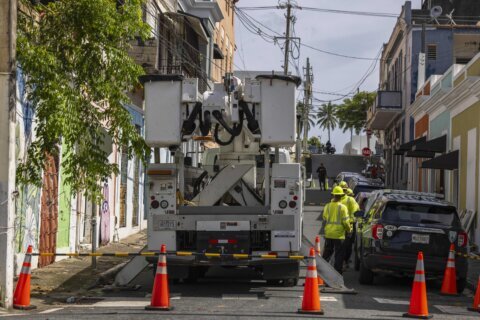Americans dedicate upward of 17 billion hours each year to unpaid care for friends and family members with Alzheimer’s disease and related dementias, according to the Centers for Disease Control and Prevention.
But what happens when that unpaid labor becomes too much for you and your family to take on? That’s where memory care, a specialized type of elderly care for individuals with Alzheimer’s disease and other types of dementia, can step in.
Finding the Best Memory Care Facility for You Takes Time: Start Early
Finding a memory care facility for your loved one takes time. Start the search early, before their condition has progressed. Waiting to search for memory care until the later stages of Alzheimer’s makes the search more stressful and could even increase risks to your loved one’s safety and well-being.
[Signs It’s Time for Memory Care]
Our 12-Step Checklist to Find the Best Memory Care Options
You’ll need to keep several factors in mind when finding a memory care facility for your loved one. Here is a checklist for a memory care facility with 12 points to remember as you research, tour and receive price quotes for various communities.
1. Consider your loved one’s preferences
Finding a memory care facility is easier when you start by narrowing down memory care facilities. First, search for which options are the right size and the right location.
Consider the following factors:
— The facility’s proximity to family members and friends who are most likely to visit your loved one
— How close the facility is to emergency medical care
— If the facility is large enough to have certain on-site services. For example, if your loved one needs a hip replacement, having on-site short-term rehabilitation makes their healing easier, and they wouldn’t have to leave their memory care facility for their rehab program.
— Being part of a larger medical system. Having a neurologist, primary care provider and physical therapist all within the same health network and with access to the same medical records facilitates comprehensive care.
[SEE: Early Signs of Dementia.]
2. Consider your loved one’s care needs
Memory care is often a part of assisted living communities or nursing homes, though they can sometimes be stand-alone facilities.
If your senior is more independent and only needs assisted living, there are options with memory care. More than 1 in 10 assisted living facilities are catered toward adults with dementia, and almost 1 in 5 have a designated dementia care wing. On the other hand, if they need more help and medical care, nursing homes with memory care are available as well.
Consider minimizing moving your loved one around to multiple facilities. Memory care units that employ an “aging in place” strategy often have both assisted living and nursing home units on-site to prevent disruptions caused by moving.
“Moving a senior with memory impairment can reduce their independence,” says Dr. John Showalter, Danville, Pennsylvania-based chief strategy officer of Linus Health, a digital health company enabling early detection of Alzheimer’s and other dementias. “In later stages of memory loss, seniors may not even remember that they have moved and become frequently disoriented in their new living situation.”
However, aging in place with long-term support for daily activities, he adds, can help prolong the senior’s independence.
[READ: Everything You Need to Know About Dementia Care in Assisted Living Communities.]
3. Consider your and your loved one’s finances
varies depending on the level of care, such as whether the care is in assisted living or a nursing home, the facility’s geographical location and the specific services offered in each facility.
To get a rough estimate of what you might expect for care costs, consider the following:
— Determine whether your loved one will be participating in memory care that is more similar to an assisted living level of care or a nursing home level of care and whether or not they will be in a private or semi-private room.
— Genworth Financial 2023 data states the monthly median cost for assisted living is about $5,350 per month. Nursing home care ranges from $8,669 to $9,733 per month, depending on whether the room is private or semi-private. But, this doesn’t account for memory care.
— Dementia Care Central estimates that memory care adds about $1,200 more to a monthly care bill. So, add an extra $1,200 to the above assisted living or nursing home cost to account for extra memory care support and security.
If you need help paying for senior care or a nursing home with no money, look into benefits with Medicaid, social security, veterans benefits or speak with a senior care financial advisor.
4. Research facilities that match your preferences, needs and budget
Based on the above factors, create a shortlist of facilities you think would meet your preferences, needs and budget, and continue with more in-depth research on the individual facilities.
Keith A. Myers, the president and CEO of MorseLife Health System, a nonprofit senior services organization in West Palm Beach, Florida, suggests using the following resources to look into memory care facilities:
— Accrediting agencies. For instance, the largest accrediting body in health care, The Joint Commission, creates standards for all types of health care facilities. The Joint Commission also awards the Gold Seal of Approval to health care providers committed to patient safety and quality of care.
— CMS Five-Star Quality Rating System. This system from the Centers for Medicare & Medicaid Services rates nursing homes on a scale of one to five stars based on state health inspections, staffing levels and quality measures.
— Facilities certified as a “Great Place to Work” or featured as a top workplace. This designation often reflects a positive environment. Happy staff and residents indicate quality care and management, Myers adds.
5. Tour your favorite options
Now that you’ve found options that meet the needs of your family and loved one, it’s time to tour
your top picks.
Myers advises all prospective memory care residents and their families to observe the facility environment.
Take time to:
— Watch how staff and residents interact throughout the day
— Ask for a walkthrough of what a typical day looks like for residents
— Inquire about the facility’s unique programs that enhance the lives of memory care residents. Are there life-enriching activities, on-site physicians or memory care-specific safety measures, such as locator systems?
6. Get to know the staff
While you’re on a tour, take time to meet the staff. Staff satisfaction and competency will be reflected in the care your loved one receives.
Consider the following:
— Staff satisfaction. Do staff members seem equipped to handle resident care and concerns? Are they communicating to residents, family members and visitors with confidence and respect?
— Staff recognition. “Look into any awards, accolades or certifications the facility and its staff have received. These recognitions often reflect a commitment to excellence and quality care,” Myers explains.
— Staff standards of care. Showalter advises you to look for a facility that rarely uses restraints or hypnotic medications and one that has low rates of patients losing their independence and needing help with daily activities. “These measures show that the facility knows how to care for patients with memory impairment,” he adds.
— Staff training. “There is no registry or database that lists which training different memory center staff may have taken,” Showalter explains. “However, the best way to find out is to ask, ideally prior to making a decision about which memory center to use.”
Just as much as you are trying to learn about the staff by talking to them, don’t forget to also talk to the staff about your loved one.
“Caring for a patient in a memory care facility is a team sport,” Showalter explains.
It’s important the staff take an interest in getting to know your loved one, “such as if your loved one liked swing music, enjoyed particular shows or valued church services,” he says.
7. Understand how the facility prioritizes safety
Resident safety should be the facility’s top priority. During your tour, make sure you understand what the memory care unit is doing to address these top safety concerns with adults with Alzheimer’s and dementia:
— Falls. Cognitively impaired individuals have trouble with balance, says Dr. Gary Small, a geriatric psychiatrist, the chair of psychiatry at Hackensack University Medical Center and physician-in-chief for behavioral health at Hackensack Meridian Health in New Jersey. “Make sure handrails are present in all bedrooms, bathrooms and hallways. Additionally, inspect for wires, area rugs or steps that can lead to falls.”
— Wandering. Having space, especially outdoors, can alleviate a senior’s urge to wander, Small says. “Look for measures like alarms, secured gates and doors.”
— Medications. Adults with Alzheimer’s or dementia have trouble remembering to take medications. “It’s essential the facility offers services that help residents manage their medicine to optimize the medication and avoid side effects,” Small adds.
— Staffing. Find out the staff-to-resident ratio. “The staff may be friendly toward you as a potential future customer,” Small warns. “Observing how they interact with others can be informative about the culture and mood of the facility.”
— Agitation. Agitation is also common in dementia residents. “Special staff training in dementia care is important since cognitively impaired people can become easily agitated by caregivers who lack knowledge in how to calm someone confused and upset,” Small explains.
8. Dig deep into costs and fees
Make sure you understand all costs and fees associated with memory care to get a full picture of what services your loved one is getting. On your tour, you may request to meet with a facility representative to go over some of the costs with you. Ask if they require any type of deposit upfront, as well as the payment structure during your loved one’s stay.
Facility rates might price a flat rate, or they may have a base rate with add-on services for extra charges. Examples of additional costs may include:
— Skilled nursing services, like providing IV hydration
— Transportation
— Therapy, like physical, occupational or speech therapy
— Meals served per day
— Rooms with kitchen amenities
9. Understand offered assessments and care plans
All residents need a personalized care plan. Care plans are made up of several diagnoses, interventions and progress toward goals.
Nurses in memory care design a care plan with the following elements in mind:
— Diagnosis: Care plans are centered around nursing diagnoses. Unlike a medical diagnosis, nursing diagnoses focus on problems, risks, syndromes or health promotion related to a resident’s condition. A medical diagnosis might be “Alzheimer’s disease,” while a nursing diagnosis might be “self-care deficit related to cognitive impairment from dementia.”
— Intervention: Interventions list the actions the staff will take to reduce risk, create comfort or promote healing. One staff intervention for the above diagnosis might be to provide the resident with verbal cues and instructions to help them get dressed in the morning.
— Evaluation: Periodically, the nursing staff reviews how the residents are meeting their goals and how the diagnoses and interventions might need to be adjusted. For a resident who had a successful intervention, the nurse might document something like, “Resident was able to get dressed with standby assistance, and this goal will be reevaluated tomorrow.”
Here are some questions you may want to ask about care plans and assessments:
— How are care plans developed?
— What are typical goals and plans within a care plan for your residents?
— How often are nurses assessing and evaluating care plans?
— How often are multidisciplinary teams, like therapists or dietitians, involved in care planning?
— How often does a doctor or advanced practice provider assess and evaluate the residents?
— Are resident rooms grouped with others who have care plans similar to theirs?
10. Learn about activities and specialized therapies
One of the key benefits of memory care is the specialized activities and therapies they offer for cognitive support. When touring a facility, you may want to ask to sit in on some of their daily activities or speak to the activities director.
Activities may include:
— Mental stimulation activities, like puzzles
— Classes to learn a specific skill, such as baking or knitting
— Movie nights
— Game nights
— Arts and crafts
— Group and social activities
— Exercise activities and outings
— Cutting-edge programs that may be facility-specific, like the use of sound, light or tactile sensation to improve mood
Small says the above activities help improve patient’s quality of life and optimize their cognitive abilities, mood and overall function.
11. Talk transportation
You’ll want to understand how accessible the memory care facility is and if they have any transportation limitations.
Here are some examples of what you might want to ask:
— How do residents get to and from off-site appointments, like dentist appointments?
— If a resident has a medical emergency, where would the ambulance likely bring them?
— Can residents leave the facility for a short trip with family members, such as going to their son’s house for their granddaughter’s first birthday party?
— If residents can leave, is private transportation allowed? Are there limitations on the amount of time they can leave?
12. Ask about emergency protocols
Understand how staff would respond if your loved one has an emergency. Memory care facilities should have protocols in place for all of the following common emergencies:
— Natural disasters, fires and security threats
— Medical emergencies, like a heart attack or stroke
— Falls
— Behavioral health incidents, like action taken when a resident becomes combative
Additionally, ask how the facility tracks and follows resident wishes, like do-not-resuscitate orders or medical power of attorney.
Explore Top-Rated Memory Care Facilities With U.S. News
Once you’ve used the checklist for a memory care facility, start your search today to find the right memory care facility. To find the best memory care near you, explore the U.S. News & World Report Best Memory Care Communities 2024.
U.S. News analyzed data from nearly 400,000 resident and family survey responses at more than 3,500 senior living communities across the country in 2024. The senior living survey covers residents and family members’ satisfaction with all aspects of senior care, and scores for memory care communities were derived from family responses.
More from U.S. News
8 Questions to Ask a Geriatrician at Your First Appointment
Preventing Dementia and Alzheimer’s: 8 Habits to Reduce Your Risk
8 Health Problems That Can Mimic Dementia
How to Find the Best Memory Care Facility Near You: A Checklist originally appeared on usnews.com







